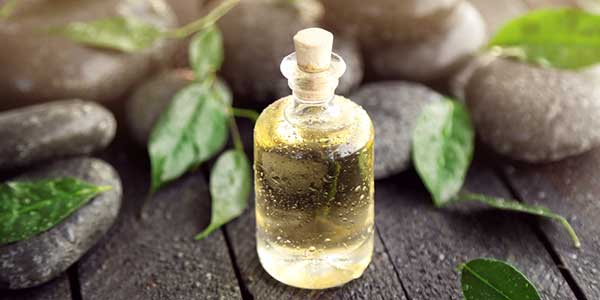
Not to be confused with the green and black teas commonly steeped and sipped, tea tree oil is derived from the leaves of the tea tree and also known as the Latin alias Melaleuca alternifolia. Related to its antimicrobial and antibacterial properties, tea tree oil has been used as a traditional medicine for cuts and wounds by Australia natives. From reducing acne to promoting oral health, discover the uses and benefits and tea tree oil here!
Tea Tree Oil Uses and Benefits
1. Reduce Acne
One of the most recognized benefits of tea tree oil relates to skin health, as it is added to a number of skin care products. Though working slower compared to a benzoyl peroxide lotion, using a topical five percent tea tree oil gel has shown to treat acne, along with causing fewer side effects.
2. Relieve Eczema
Eczema is a general term describing rash-like, inflammatory conditions of the skin and can result in a severe rash, itching and blistering. The antiseptic properties of tea tree oil can relieve eczema by soothing itchiness, healing the skin, and reducing inflammation.
3. Treat Toenail Fungus
Thanks to its antimicrobial characteristics, using a concentrated tea tree oil solution may be effective in treating fungal toenail infections. In fact, the oil has shown to be as effective as clotrimazole, a medication used to treat number of fungal infections. Drugs.com suggests applying 100 percent tea tree oil over a six-month duration is used to treat nail fungal infections.
4. Fight Athlete's Foot
More formally known as tinea pedis, athlete's foot is a common fungus that thrives in warm and humid conditions and spread by going barefoot, including in locker rooms and public swimming pools. Individuals with athlete's foot experience itchy or burning sensations, excessive skin peeling, and raw skin on the toes and feet. Tea tree oil can relieve the common symptoms of athlete's foot, including scaling, inflammation, itching, and burning.
5. Oral Health
Tree tree oil is widely used in a number of oral health products, including toothpaste, dental floss and picks, and mouthwash. Brushing and rinsing with the oil may be effective in reducing dental plaque, gum bleeding and inflammation (gingivitis), and bad breath.
6. Hair Care
Dry scalp? Applying tea tree oil may lessen scalp itchiness and greasiness in people with dandruff. Its may also act as a lice repellent by killing off eggs and the number of living lice.
7. Hand Sanitizer
Related to its anti-microbial properties, tea tree oil can be a natural and effective hand sanitizer. But rather than relying on a commercial product that may come with unwanted ingredients, prepare a hand sanitizer with natural and nourishing essential oils and aloe vera in the comfort of your own home.
8. Deodorant
Once again, the antimicrobial properties of tea tree oil can kill bacteria that cause body odor. Learn how to make a homemade tea tree and coconut oil deodorant here.
9. Treat Minor Cuts
Tea tree oil can be used to treat and disinfect minor cuts and abrasions, particularly by killing off bacteria that can cause infection in open wounds. It can also sooth a painful sore, though direct mouth and eye contact should be avoided.
10. Freshen the Household
From laundry to carpet, use tea tree oil to freshen your household! It can also be used in homemade kitchen cleaners and abolish mold.
A Word of Caution
Tea tree oil is mostly used a complementary approach and should not take the place of effective treatment strategies. And while tea tree oil is and can be used in a safe manner, it is critical to always inform your primary care provider about any alternative approach you are interested in trying to manage any sort of condition. They can further address any concerns and side effects, including the risks of an allergic skin rash or irritation with tea tree oil use. Additionally, oral consumption of tea tree oil can cause serious symptoms, including mental confusion and loss of muscle coordination.







